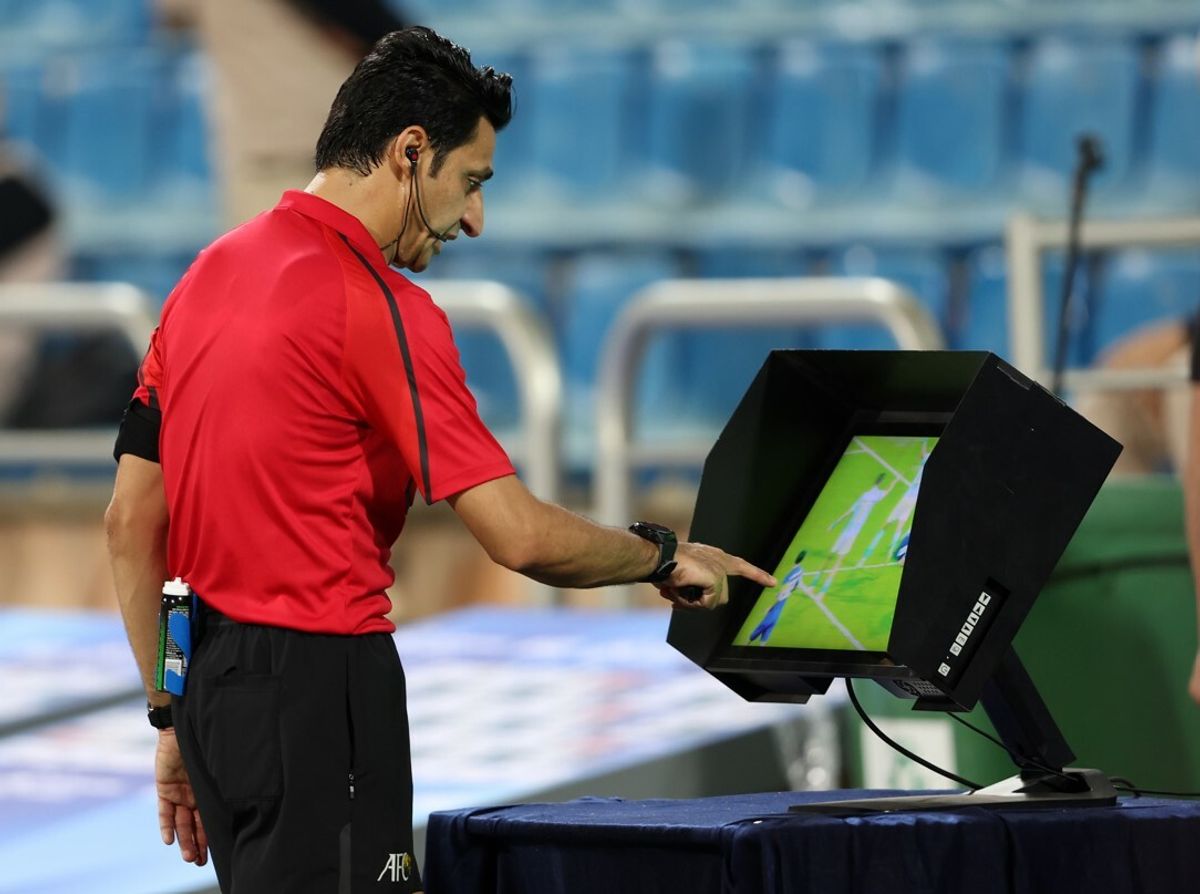The football world has cast doubt on VAR as the technology has reduced spontaneity and delayed the game.
The Asian Football Confederation (AFC) has announced plans to implement the Video Assistant Referee (VAR) system across its revamped three-tier club structure as well as the inaugural AFC Women’s Champions League for the upcoming 2024/25 season.
VAR will be first used in the League Stage this September, as the AFC views the technology as a way to “maintain the highest officiating standard”.
Earlier this year, the AFC implemented the VAR system for the first time across all matches at the Qatar-hosted Asian Cup. Additionally, it became the first Confederation to introduce the Semi-Automated Offside Technology (SAOT) system at the continental men’s national team level.
Yet the football world has cast doubt on VAR as the technology has created particular issues on the pitch.
Several high-profile incidents have led clubs and coaches to complain about VAR, calling out its dubious decision-making.
Questionable calls
In November, Arsenal issued a statement decrying the state of Premier League officiating following a defeat to Newcastle United.
Coach Mikel Arteta raged against Newcastle United’s goal as it was allowed to stand following VAR checks on three separate incidents.
Anthony Gordon’s goal, which secured the match for his side, was checked by VAR for going out of play in the build-up, a potential foul on Gunners defender Gabriel, and offside, but it was allowed to stand after no reasons to overturn the on-pitch decisions were visible.
After the match, Arteta said lamented the decision as a “disgrace”.
“That’s how I feel and that’s how everybody feels in that [dressing] room,” he said. “You cannot imagine the amount of messages we’ve got saying this cannot continue. It’s embarrassing.”
Another incident occurred with Manchester United late last year in the Champions League, which caused Erik ten Hag to criticise the referee, Donatas Rumsas.
Manchester United forward Marcus Rashford was sent off after a VAR decision. by Copenhagen’s opening two goals as Manchester United dramatically lost the match 4-3.
“We are winning the game and the red card changes everything. We [then] concede two goals before half-time which should never count,” the Dutch football manager said at the time.
“The first is offside, the second a penalty – but it’s so close and the hand is in such a normal position. The red card is harsh; he [Rashford] went for the ball, and the referee needed such a long time [to decide]. When you freeze [the act] it always looks worse,” Ten Hag added.
Despite the controversial calls of VAR, the system looks to stay in the football world.
Following the heavy backlash, FIFA has been testing a new VAR system that allows coaches to challenge a referee’s decision rather than video officials only undertaking reviews.
The new system, Football Video Support (VS), allows for the same situations to be challenged as in VAR—goals, penalties, red cards, and mistaken identity.
Each team can make two challenges per match. If the challenge is successful, the team keeps that review.
FIFA’s head of referees, Pierluigi Collina, applauded the first tests.
“Our aim is to continue to trial this new system, namely in our youth competitions,” he said. “We hope to be able to give all of you who have indicated an interest in the possibility to implement this system in your competitions.”
The AFC stated that an AFC VAR Information Officer (VIO) Workshop will take place in the upcoming months to ensure that the VIOs from the various tournaments are aligned with the game’s rulings.







